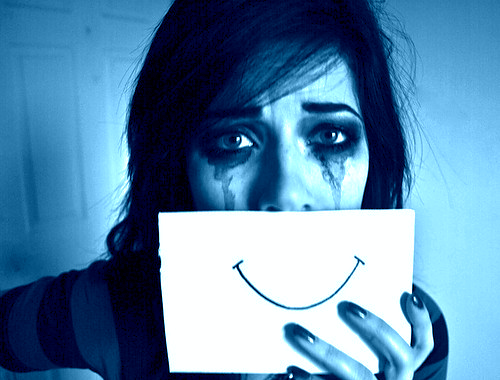Call Now 082-442-4779 or email info@pathwaysplettrehab.co.za
Challenging Anxious Thoughts
One of the biggest issues we see in our drug rehab centres that is coupled with anxiety in addiction. Anxiety in addiction is not only highly common, it is also something that can surprisingly elude therapists for years. ADD, and many other diagnosis given to young children can turn out to be wrong. We see many people who have been treated for the wrong disorder their whole lives. It is not uncommon at all. Anxiety baffles the best of us. Until recently, someone with co-existing anxiety and addiction often received conflicting medical advice. If they first went to a psychiatrist, they were typically referred to a substance abuse counselor and told they had to get their addiction under control before they could be treated for anxiety. If they first went to a substance abuse counselor, they were usually referred to a psychiatrist and told that they had to get their anxiety under control before they could be treated for addiction. “Neither of these two approaches worked.” Today, the consensus is that the anxiety and addiction must be treated simultaneously. Research shows that treating substance abuse without treating the underlying anxiety is associated with an increased risk of relapse.
Anxiety in addiction is double whammy that needs professional treatment. Although anxiety disorders are highly treatable, only about one-third of people with these conditions ever receive medical treatment. Instead, they may choose to numb their anxiety to get through the day, and to try to get more or better sleep, by drinking alcohol, smoking and/or taking prescription and/or illicit drugs.
Anxiety in addiction, and even since early childhood, can be a healthy emotion—it forces us to focus on our problems, and work hard to solve them. But sometimes, anxiety grows out of control, and does just the opposite. It cripples our ability to solve problems. When this happens, irrational thoughts often play a role.
In this exercise on changing the dynamics of anxiety in addiction, we will practice catching our irrational thoughts, and replacing them with rational alternatives. With enough practice, this will become a natural process that can help you manage anxiety. Describe a common situation that triggers your anxiety: example: “giving a speech in front of a crowd” or “driving in rush hour traffic” Anxiety distorts our thinking by causing us to overestimate the likelihood of something going wrong, and imagine the potential consequences as worse than they really are. Sometimes, just taking a moment to think about these facts can help us recognize our irrational thought patterns that manifest through anxiety in addiction. So go with it for a moment. Imagine you are faced with the anxiety-producing situation from above.
Write it down
Take pen and paper and describe the…
Worst outcome:
Best outcome:
Likely outcome:/
Now, imagine the worst outcome comes true. Would it still matter? Write your answers down
1 week from now:
1 month from now:
1 year from now:
Usually, anxious thoughts focus on the worst possible outcomes, even when they aren’t likely. For example, a person who is nervous about giving a speech might think: “I am going to forget everything and embarrass myself, and I’ll never live it down”.
As an outside observer, we know that an alternate, more rational thought might be: “My speech might only be OK, but if I do mess up, everyone will forget about it soon enough”.
Using your own “worst outcome” and “likely outcome” from above, describe your…
Irrational thought:
Rational thought:
Turn anxiety in addiction around
Remember that substance abuse and anxiety disorders are both disease processes. Drug and alcohol addiction, and anxiety in addiction, were once considered to be signs of moral weakness, but now addiction is recognized as a chronic disease of the brain. Likewise, anxiety in addiction is not simply a feature of the personality, but a form of mental illness. One key that I learned from a mentor was when you feel super stressed about doing something, change your perception of the situation to, ‘I feel grateful for this opportunity.’ This is the secret about anxiety in addiction, you can flip it on its head. Anxiety is fear, and the cure to any fear is love! One of the best routes to this is realizing everything in your life is a gift. It does not have to be rocket science! I really do believe that we are guided with the problems we have and every serious problem that you have is a gift if you really go deep about it. If you can really look back on your life and realize that your worse days are really your best days, your life takes on a whole new meaning. Looking back on my life when I was depressed for years, I say thank god I was depressed for years because if I wasn’t I wouldn’t be so caring, loving and have the confidence that I have right now. If you can really start doing this with your life I promise you, you’ll take life like a game and have fun with it.
Gratitude Exercise
1. Close your eyes and put your hand on your heart.
2. Start going back to times in your life that you had happy experiences and feel grateful.
3. Start feeling grateful for another day of Life
Additional work shows that not only do anxiety and substance abuse happen to frequently be found together, but that anxiety may cause substance abuse – there may be causation as well as correlation. This is seen in studies that show anxiety predating substance abuse and also show that using interventions to decrease anxiety also decreases the later incidence of substance abuse. Whether the chicken or the egg comes first, both these aspects of illness can be treated together. For more help with anxiety in addiction contact us.



